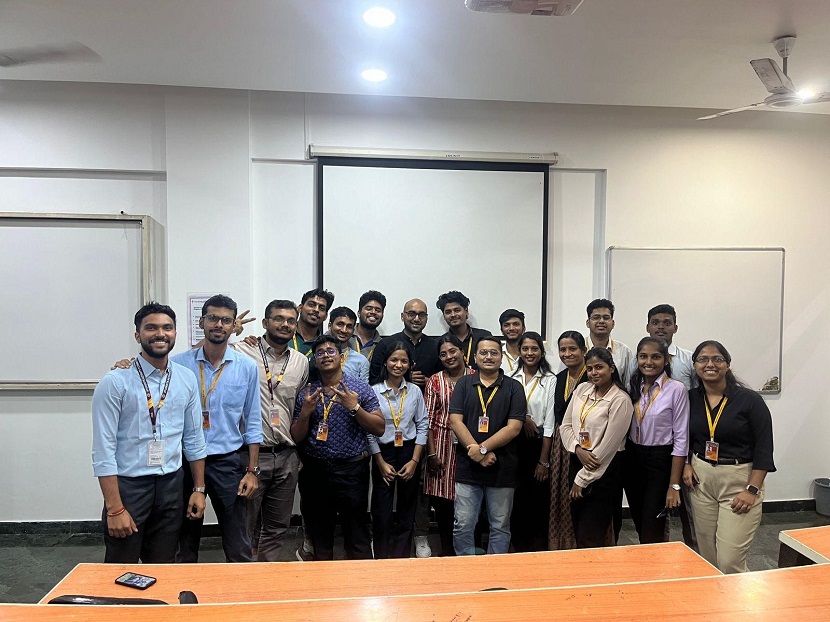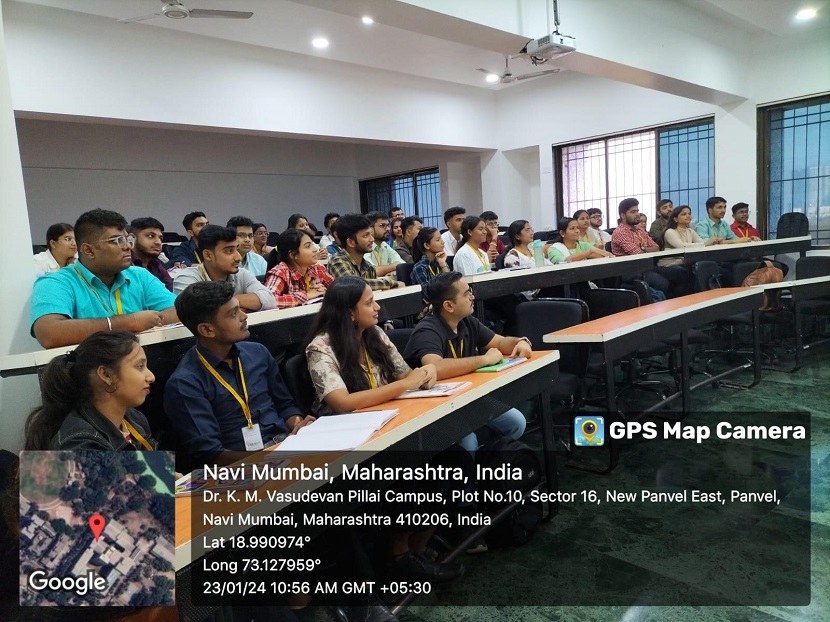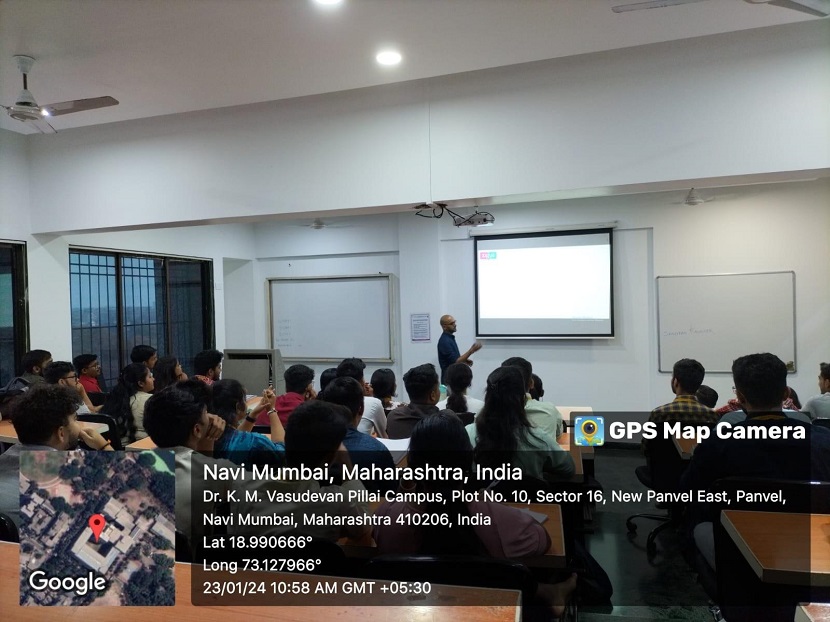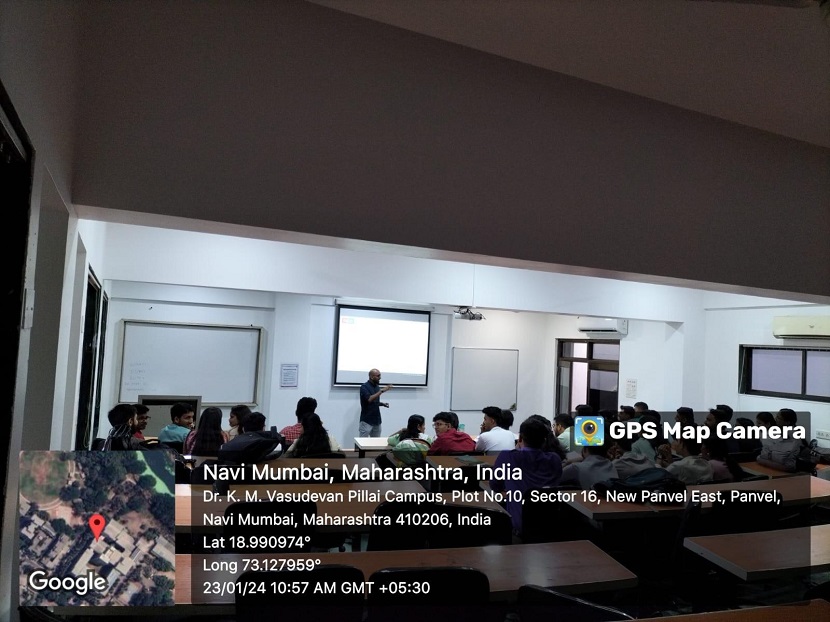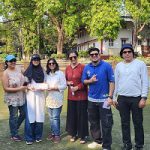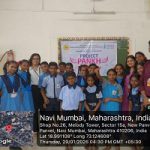Day 1
- Introduction:
Mr. Sandiran Kaunder began the session by introducing himself. He shared details such as his name, place of origin, the reason for choosing Pillai College, his strengths, weaknesses, and his expectations from the participants. - Question, Query, Doubt:
He emphasized the importance of actively participating in the learning process by encouraging questions, queries, and doubts. This approach ensures a deeper understanding of the subject matter. - Overcoming the Fear of Introduction:
Mr. Kaunder delved into the psychology behind the fear of introducing oneself. He provided insights on how to overcome this fear, promoting confidence and effective communication skills. - Teaching the Golden Circle:
Mr. Kaunder focused on the concept of the Golden Circle, elucidating its relevance and application. This model, popularized by Simon Sinek, explores the “Why,” “How,” and “What” of any idea or endeavour. - Team Building for Quiz:
He discussed the formation of teams for a quiz, emphasizing collaboration and effective communication within the team members. - Building a Dream Product with Team Members:
Mr. Kaunder challenged participants to work collectively on building their dream product. This exercise aimed at fostering teamwork, creativity, and problem-solving skills. - Approaching Projects:
He outlined a strategic approach to projects, emphasizing the importance of understanding the “why,” “how,” “when,” “whom,” and “where” aspects for effective execution. - Art of Information:
The session covered the art of providing information, focusing on the reasons behind introductions and connections. Mr. Kaunder advised against pulling in friends or family and highlighted the importance of follow-ups for maintaining relationships. - Communication Process:
A breakdown of the communication process, including sender, receiver, message, feedback, and channel, was presented. This model helped participants understand the dynamics of effective communication. - Sharing Expectations and Acceptance:
He emphasized the significance of sharing expectations within a team and being open to acceptance. This fosters a positive and collaborative working environment. - Activity (Quiz) Instruction:
Clear instructions were given for the quiz activity, including a unique method of standing in ascending order based on size before speaking. - 7 Cs of Effective Communication:
Mr. Kaunder introduced the 7 Cs of communication – Clear, Concise, Concrete, Correct, Coherent, Complete, and Courteous, providing guidelines for effective communication. - Being Positive:
A segment on maintaining a positive mindset was included, underlining its impact on personal and professional success. - Hearing vs. Listening:
The importance of active listening was discussed, along with the traits and skills required for effective communication. - Building Self-Image:
The session concluded with insights on building a positive self-image, crucial for personal and professional growth.
In summary, Mr. Sandiran Kaunder’s seminar covered a comprehensive range of topics, providing participants with valuable insights and practical tools for effective communication, teamwork, and personal development.
Day 2
Date: 24th January, 2024
Introduction:
The leadership and mindset workshop aimed to explore various aspects of effective leadership, mindset types, communication skills, and personal presentation. The session comprised insightful discussions, engaging activities, and practical knowledge sharing.
- Leadership:
Leadership was discussed as the ability to guide and influence others toward a common goal. The session covered leadership traits and debunked common myths, emphasizing the importance of adaptability and inspiration. - Mindset:
- Benefits Mindset: Explored the positive impact of cultivating a mindset focused on opportunities and growth.
- Fixed Mindset: Discussed the limitations of a fixed mindset and its hindrance to personal and professional development.
- Growth Mindset: Emphasized the importance of embracing challenges and learning from experiences.
- Art of Introduction:
Explored the importance of making a lasting first impression through a well-crafted introduction, highlighting key attributes and achievements. - Job vs Career:
Distinguished between a job and a career, underscoring the long-term commitment and personal fulfillment associated with the latter. - Definitions of Leadership:
Various definitions of leadership were shared, emphasizing its dynamic and multifaceted nature. - Winning Mindset:
Explored the concept of a winning mindset, focusing on resilience, determination, and a positive outlook. - How to Present Yourself:
Discussed the significance of personal presentation, covering aspects like grooming, attire, and overall demeanour. - Confidence Building:
Explored the definition of confidence and provided practical tips on building and exuding confidence in professional settings. - Importance of Body Language:
Highlighted the crucial role of body language in effective communication and leadership, providing practical insights. - Communication Skills:
Covered various aspects including speaking skills, gestures, and appropriate dress code, stressing their impact on effective communication. - Greeting:
Explored the nuances of greetings and their role in establishing positive connections. - Impact of Words:
Emphasized the power of language, discussing how a single word can significantly alter the meaning of a sentence and the importance of thoughtful word choice.
In summary, The session concluded with participants reflecting on the key learnings, sharing their takeaways from both sessions, and how they plan to apply the insights gained in their personal and professional lives. the workshop successfully covered crucial aspects of leadership, mindset, and effective communication, providing a holistic learning experience for all participants and Engaging activities were incorporated to provide hands-on experience and practical application of the discussed topics. Active encouragement was given to all participants to share and present their thoughts, fostering a collaborative learning environment.
Day 3
Date: 25th January, 2024
Introduction:
In this report, we’ll explore various aspects related to personal development, organizational behaviour, and the importance of fostering a conducive environment for growth and success. We’ll delve into topics such as passion, ambition, success, cognitive biases, corporate ecosystems, the functions of organizations, and the significance of having a purpose-driven approach. Additionally, we’ll discuss the role of role models and values, engaging activities for fostering participation, and the importance of implementing learnings into everyday life.
- Passion:
Passion is the driving force that fuels our enthusiasm and dedication towards something we deeply care about. It motivates us to pursue our interests wholeheartedly and overcome obstacles along the way - Hobby:
A hobby is an activity done for enjoyment and relaxation outside of one’s regular occupation. Engaging in hobbies can provide a sense of fulfilment, reduce stress, and foster creativity. - Ambition:
Ambition is the desire and determination to achieve success or accomplish goals. It propels individuals to strive for excellence and pursue opportunities for personal and professional growth. - Success:
Success is the achievement of goals or the fulfilment of one’s aspirations. It can be measured by various factors such as personal satisfaction, recognition, and the attainment of objectives. - Cognitive Biases (Video Presentation):
Cognitive biases are systematic patterns of deviation from rationality in judgment. They can influence our decision-making processes, leading to errors in reasoning and perception. - Corporate Ecosystem:
An organizational ecosystem comprises various entities, including stakeholders, partners, and competitors, that interact within a business environment. It involves collaboration, value creation, support systems, and continuous learning and evaluation. - Organizational Existence:
Organizations exist to solve problems or full-fill needs within society. They serve both internal and external functions, including regulatory compliance. - Role Models and Values:
Role models are individuals who exemplify qualities and behaviours worth emulating. Values guide decision-making and behaviour, shaping the culture and identity of individuals and organizations. - Engaging Activities:
Activities that encourage participation and foster practical learning experiences are essential for personal and professional development.
They promote open communication, creativity, and collaboration.
Conclusion:
In conclusion, fostering passion, ambition, and a purpose-driven mind-set is crucial for personal and organizational success. By understanding cognitive biases, nurturing corporate ecosystems, and embracing values, individuals and organizations can strive towards continuous improvement and growth. Implementing learnings into daily life and actively seeking opportunities for development are key to realizing one’s potential and making a meaningful impact in the world.
Over the three-day workshop, Mr. Sandiran Kaunder covered a diverse range of topics, including effective communication, teamwork, leadership, mindset, and personal development.
Participants engaged in practical activities, such as team-building quizzes and dream product creation, gaining valuable insights and tools. The sessions highlighted the importance of passion, ambition, and a purpose-driven mindset for personal and organizational success. Mr. Kaunder emphasized the significance of clear communication, active listening, and positive self-image.
The workshop successfully created a collaborative learning environment, encouraging participants to reflect on key takeaways and apply newfound knowledge in their lives. Overall, it provided a holistic and engaging learning experience.

